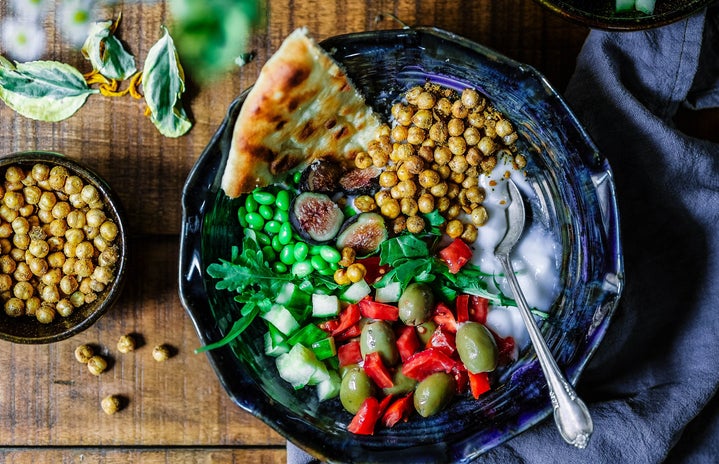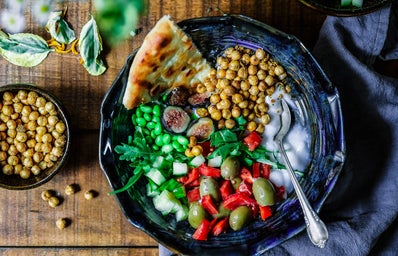When people think about food in college, they typically think of dining hall food, dorm-room Ramen and lots of coffee. What people often don’t realize is that a large population of college students are actually food insecure, meaning that they don’t have access to nutritious and affordable food. While college students may have meal plans and dining halls, they may struggle to access or afford food that is actually nutritious and fulfills dietary needs. This can lead to a disruption in one’s eating patterns and even reduced eating.
Temple University found that in 2019 and 2020 23% of undergraduate students and 12% of graduate students, or over 4 million college students total, experienced food insecurity. They also found that food insecurity is higher in community colleges than four-year institutions. An article from Best Colleges reports that first-generation students are also more likely to experience food insecurity. Additionally, studies have shown that students who are food insecure tend to have slightly lower GPAs and graduation rates than students who are food secure. Lastly, college students may not be eligible for federal aid programs, particularly food stamps, because the programs require them to work 20 hours a week for three or more months. Therefore, it is up to colleges and their student population to create solutions for food insecurity.
At Saint Louis University (SLU), students saw the need for more nutritious food and hygiene products among the student population and founded Billiken Bounty in 2018. Located on the second floor of the Center for Global Citizenship, Billiken Bounty is a completely student-run food pantry on SLU’s campus that is available to all students. It is run completely on donations and by student volunteers.
I sat down with Kelsey Schmeling and Riley Connelly, co-chairs of Billiken Bounty, on November 17 to talk about Billiken Bounty and food insecurity on SLU’s campus. Here’s what I learned:
Where does Billiken Bounty get their food?
Billiken Bounty buys its food and other resources in bulk from Schnucks. Their pickup orders are quite the event. They also pick up supplies from Operation Food Search, which recently started a college and university program. Billiken Bounty also gets some of its supply from food drives around campus. Food drives run by student organizations, such as residence halls or fraternities and sororities, have been among their most successful.
How many students does Billiken Bounty serve?
Billiken Bounty has an anonymous check-out survey so that they can track how often people use the pantry, what items people need the most and other data points. As of November 17, Billiken Bounty had 2,159 clients visit the pantry and 11,182 items had left the pantry since the beginning of the semester. Even during the half hour that I was talking with Riley and Kelsey, those numbers went up. They said that Billiken Bounty often has more clients than they have the supplies to support.
What items are people most in need of?
Billiken Bounty has found that people need meals that are easy to make, such as mac and cheese. There is also a large need for vegetarian meals and cultural food, which Billiken Bounty purchases based on client recommendations. In addition, there is a high demand for hygiene products such as toilet paper, detergent pods and menstrual products.
When someone visits Billiken Bounty, they must make sure whatever they are taking home is within the item limit. There is an item limit for every type of product—from pasta to paper towels—and it is usually between one and four items per category. These limits ensure that Billiken Bounty can help as many people as possible and not run out of certain items.
How can I help?
Right now, Billiken Bounty’s volunteer schedule is full, but that doesn’t mean that you can’t make an impact. You can always contact Billiken Bounty through their Instagram (@billikenbounty) or email (billikenbounty@slu.edu) and ask if they might need help at their next restock. Riley and Kelsey say that they could always use extra hands when unloading.
As they are consistently busy, Billiken Bounty can always benefit from more donations. The items that they are most in need of right now are:
- Mac and cheese
- Pasta
- Rice
- Cereal
- Canned beans (high protein preferred, such as black beans or garbanzo)
- Canned fruits and vegetables
- Toilet paper
- Paper towels
- Detergent pods
- Cooking oil
Food insecurity is a topic that isn’t often discussed on college campuses, but whether we see it or not, it’s there. As college students, it’s easy to feel that we don’t have the time or money to make a difference in the lives of others. Food insecurity is close to us, however, and we’re likely to experience it ourselves. So if anyone can help prevent food insecurity on college campuses, it’s college students.


